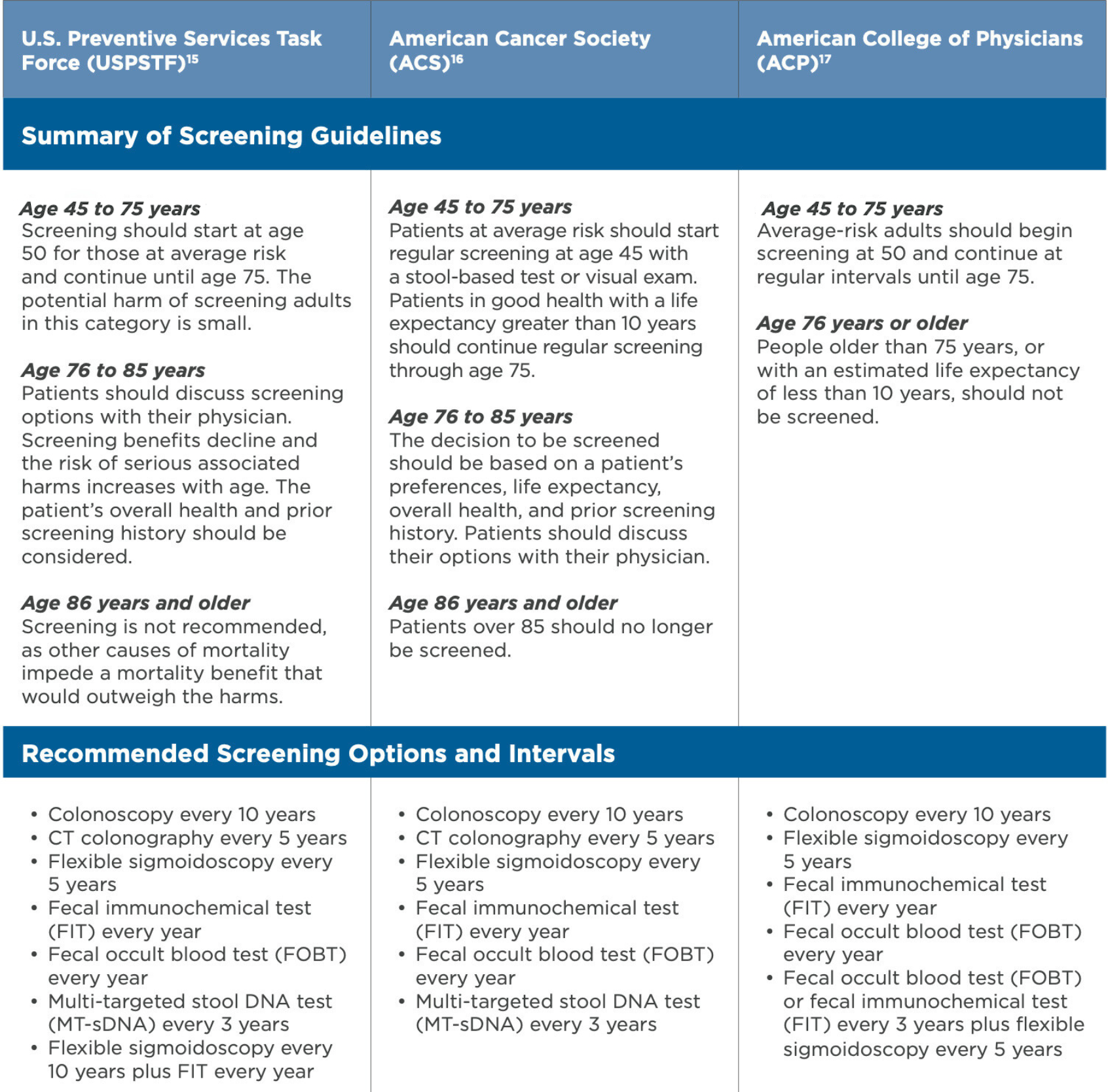Screening Guidelines for Colorectal Cancer
Approximately 154,000 new cases of colorectal cancer are diagnosed each year. Colorectal cancer is the third leading cause of cancer deaths for men in the United States. For women, it is the fourth leading cause of cancer deaths in the United States. However, for men and women combined, colorectal cancer is the second leading cause of cancer death in the United States.
Know your risk factors and get familiar with how you may be able to reduce your risk of developing colorectal cancer. While colorectal cancer poses a serious health risk to many, the good news is that screening, diagnosis, and treatment are getting more effective.
Promising Trends in Detection and Treatment
Recent trends in screening and advancements in treatment are leading to fewer deaths from colorectal cancer.
- Colorectal cancer mortality rates among adults have declined since the 1980's, largely due to screening.
- More than 1.5 million colorectal cancer survivors are alive in the U.S. today, more than at any other time.
- Screening is detecting colorectal cancer at earlier stages. The earlier the disease is caught, the better chance a person has of surviving at least five years or longer. Today, about 1 in 3 cases of colorectal cancers are found at the local stage, and the 5-year survival rate for these patients is about 90 percent.
- Promising new targeted therapies are being studied in clinical trials for first, second and third-line use in patients with metastatic colorectal cancer.
- Colorectal cancer is rising in young adults. Researchers are discovering the important role lifestyle plays in prevention, as several studies have found that exercise and a diet low in meats and high in vegetables can reduce colorectal cancer risk.

Screening Saves Lives
The U.S. Preventive Services Task Force (USPSTF), an independent panel of national experts in evidence-based medicine and disease prevention, has found convincing evidence that screening in adults aged 45 to 75 years reduces colorectal cancer mortality. Not only is screening by sigmoidoscopy or colonoscopy successful at detecting existing colorectal cancer, these direct visualization tests also find abnormalities, such as polyps, that may be precursors to cancer. While other cancer screening tests, such as a mammography, only find cancer that is already established in the body, sigmoidoscopy and colonoscopy catch abnormalities before they turn cancerous—playing a key role in cancer prevention.
Providing Screening Options May Increase Participation.
Although screening numbers for colorectal cancer are increasing, there is still much work to be done, as about one-third of eligible adults in the U.S. still have not been tested. Many people shy away from getting a colonoscopy because the test is invasive, unpleasant, and carries a certain amount of risk. For those patients, other screening methods, such as stool-based tests and virtual colonoscopies, may be more attractive options. According to the USPSTF, there are no head-to-head studies demonstrating that any one of the screening strategies is more effective than another, although each test has different strengths and limitations. There is no one test that is right for every patient, so healthcare providers should be prepared to discuss all screening options. At the end of the day, the best test is the one the patient will actually take.

Screening Guidelines Comparison
Recommendations for colorectal cancer screening vary depending on the organization issuing the guidelines. The chart below shows a side-by-side comparison of guidelines from the U.S. Preventive Services Task Force, The American Cancer Society and the American College of Physicians.

Know When to Get a Colon Cancer Screening
It's important to continue communication with your primary doctor about colon cancer screenings. If you receive a diagnosis of colorectal cancer, the Cancer Cancer Care Centers of Brevard are here to help and are conveniently located in Palm Bay, Melbourne, Merritt Island, and Rockledge, FL. Our dedicated oncologists can work with you to create a customized treatment plan that works for your needs.